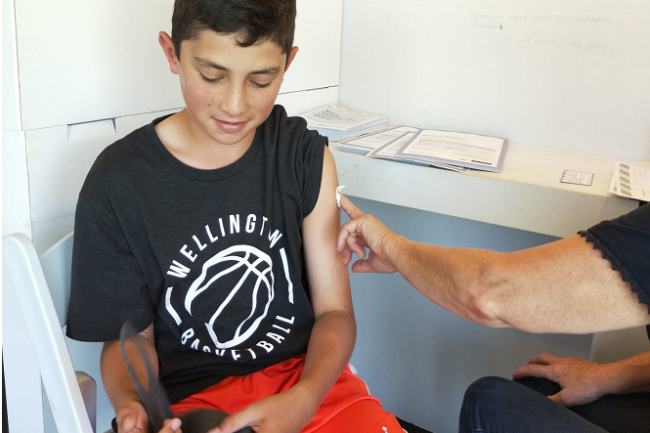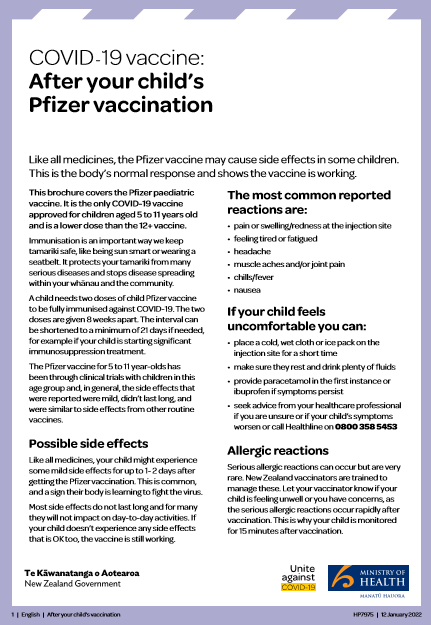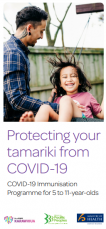From the age of 6 months tamariki can get the COVID-19 vaccine, BUT the type of vaccine (child Pfizer, adult Pfizer or Novavax) and number of doses needed depends on your child's age and if they have other health problems.
Note: The children’s version of the Pfizer vaccine is a lower dose and a smaller volume than the adult version. It's also given using a smaller needle.
Ages 6 months to 4 years
Only severely immunocompromised tamariki, or tamariki with complex medical conditions, can be immunised against COVID-19 under the age of 5 years.
- Eligible children need 3 doses of the child Pfizer COVID-19 vaccine, with the second dose given 3 weeks after the first dose, followed by a third dose given at least 8 weeks after the second dose.
- Read more about the eligibility criteria for ages 6 months to 4 years(external link).
Ages 5 to 11 years
Tamariki of this age can be protected against COVID-19 with 2 child doses of the child Pfizer COVID-19 vaccine at least 8 weeks apart.
- A shorter gap may be needed for children most at risk of severe disease or hospitalisation if disease surges. Discuss with your healthcare provider.
- This age group is not eligible for a booster.
- Note: If your child turns 12 between receiving their first and second dose, they will then receive the adult dose of the COVID-19 vaccine for their second dose. This is to ensure they are fully protected with vaccine doses appropriate for their age.
Ages 12 to 15 years
- Young people aged 12 to 15 are eligible for 2 full adult doses of either the Pfizer vaccine or the Novavax vaccine
- at 3 weeks or more apart.
- They're not eligible for a booster.
Ages 16 and 17 years
- Young people of this age can get 2 adult doses of either the Pfizer or Novavax vaccine (3 weeks apart).
- They can also get a Pfizer booster if it’s been at least 6 months since the last dose.
For ages 18 years and over, see COVID-19 vaccine topics.










